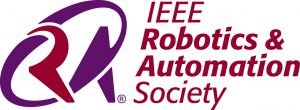Louis L. Whitcomb
Johns Hopkins University
Talk Title: Extreme Robotics: Underwater Robotic Exploration of the Karasik Seamount in the Arctic Ocean
Abstract: This talk reports recent advances in underwater robotic vehicle research to enable oceanographic operations in extreme ocean environments. We will focus on the development and recent sea trials of the new Nereid Under-Ice (NUI) underwater robotic vehicle developed by a team comprised of the speaker and his collaborators at the Woods Hole Oceanographic Institution. NUI is a novel remotely-controlled underwater robotic vehicle capable of being teleoperated under ice under remote real-time human supervision. We report the results of NUI’s recent under-ice deployments during a 2016 expedition aboard Alfred Wegener Institute’s research vessel Polarstern at 87° N 61 E° in the Arctic Ocean – approximately 180 nautical miles from the North Pole.
Bio: Louis L. Whitcomb is Professor and former Chairperson of the Department of Mechanical Engineering, with secondary appointment in Computer Science, at the Johns Hopkins University’s Whiting School of Engineering. He is an Adjunct Scientist, Department of Applied Ocean Physics and Engineering, Woods Hole Oceanographic Institution. He completed a B.S. in Mechanical Engineering in 1984 and a Ph.D. in Electrical Engineering in 1992 at Yale University. From 1984 to 1986 he was a R&D engineer with the GMFanuc Robotics Corporation in Detroit, Michigan. He joined the Department of Mechanical Engineering at the Johns Hopkins University in 1995, after post doctoral fellowships at the University of Tokyo and the Woods Hole Oceanographic Institution. His research focuses on the navigation, dynamics, and control of robot systems – with applications to robotics in extreme environments including space and underwater robots. Whitcomb is a co-principal investigator of the Nereus and Nereid Under-Ice Projects. He is former (founding) Director of the JHU Laboratory for Computational Sensing and Robotics. He received teaching awards at Johns Hopkins in 2001, 2002, 2004, and 2011, was awarded a NSF Career Award, and an ONR Young Investigator Award. He is a Fellow of the IEEE.



